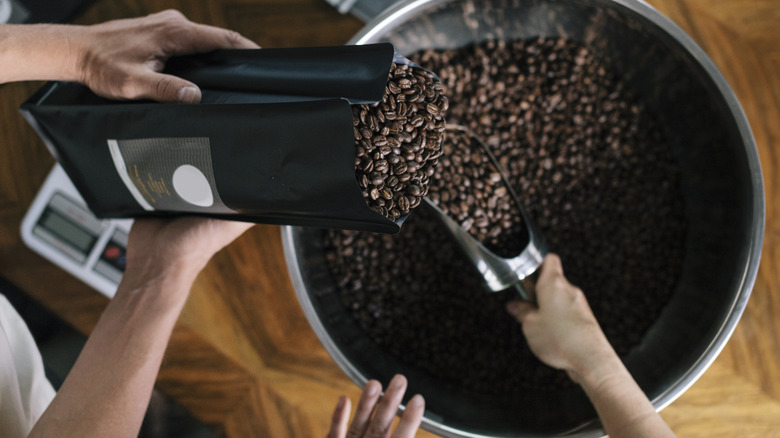The Unexpected Way Drinking Coffee Daily Affects Your Liver
Drinking coffee every day may not always make your gut happy. Plenty of people get nasty heartburn from their caffeine fix. However, your liver might be fine with the idea of indulging your java cravings.
A 2021 study in BMC Public Health looked at the prevalence and mortality rates of chronic liver disease cases among several thousand coffee and non-coffee drinkers. The coffee drinkers were less likely to be diagnosed with chronic liver disease or to die from the condition over about a 10.7-year period, even if they drank decaffeinated rather than caffeinated coffee.
Meanwhile, a 2021 review in Nutrients also showed a positive correlation between drinking coffee and improved liver health. The review explored the effect of coffee on liver fibrosis (liver tissue scarring) in adults with fatty liver disease. That study found that those who drank coffee reduced their risk of "significant" liver fibrosis by 35%.
Protection against liver cancer and tissue damage
Want more reasons to feel good about routinely visiting your favorite coffee shop? Coffee may help prevent the development of liver cancer. A 2023 review in Nutrition and Cancer looked at data from 32 studies and concluded that higher coffee consumption led to a lower incidence of liver cancer.
Certain compounds in coffee may benefit the liver. According to a 2019 review in the International Journal of Molecular Sciences, kahweol and cafestol, which are both chemical compounds called diterpenes, may prevent cancer cell development as well as tumor maturity in various parts of the body, including the liver. In fact, a 2022 review in Molecules specifically identified kahweol as being able to inhibit liver cancer cell growth.
Paraxanthine is yet another coffee compound that's related to caffeine and may be good for your liver. A 2011 study in Hepatology Research looked at the effects of paraxanthine in rats and found a connection between paraxanthine intake and lowered risk of liver fibrosis. Meanwhile, a 2023 study in Scientific Reports suggested that paraxanthine (and other "xanthine" compounds in caffeinated foods like coffee) has the potential to offer therapeutic relief for people whose livers aren't functioning efficiently.
A possible downside to drinking more coffee (and how to prevent it)
There's one potential downside to increasing your coffee consumption: It can raise your cholesterol levels, which can then increase your chances of fatty liver disease. According to a 2004 study in Nutrition Journal, this is mainly due to the presence of kahweol and cafestol, which are (rather ironically) the same anti-inflammatory compounds that can benefit your liver.
(These are the worst foods you can eat for high cholesterol.)
Therefore, if you're struggling with high cholesterol levels, you may want to limit your coffee consumption to no more than about three 12-ounce cups each day. Alternatively, you could also switch to consuming paper-filtered coffee. According to a 2025 study published in Nutrition, Metabolism and Cardiovascular Diseases, paper-filtered coffee has less kahweol and cafestol than unfiltered coffee or coffee brewed with a non-paper filter, presumably because the filter allows fewer diterpenes to pass through.


